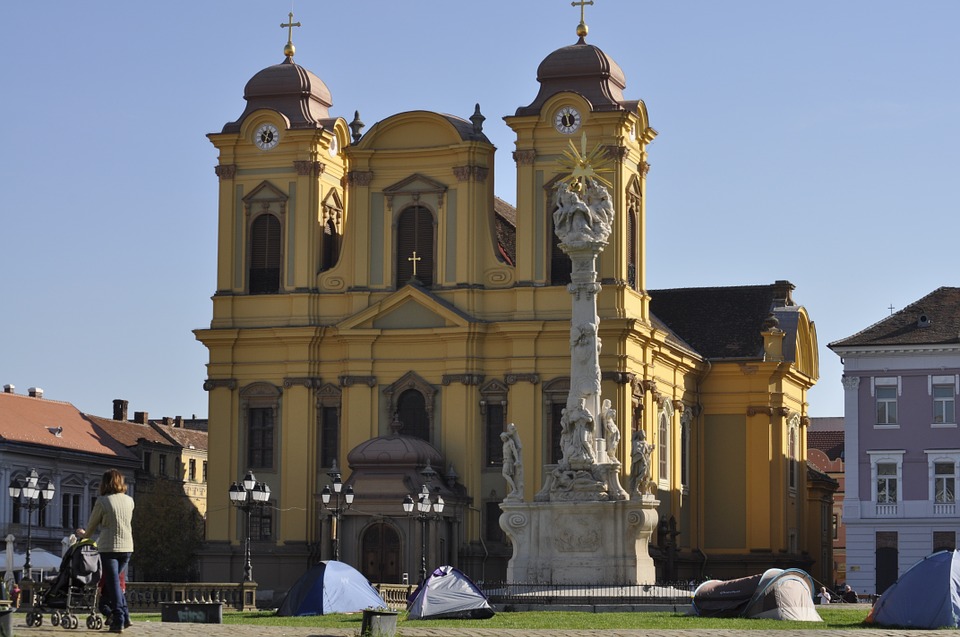Due to the effects of the coronavirus crisis, the European Commission has today proposed to give Rijeka (Croatia) and Galway (Ireland) the possibility to extend their year as 2020 European Capitals of Culture until 30 April 2021.
The Commission also proposes to postpone the year in which Novi Sad (Serbia) is due to host a European Capital of Culture from 2021 to 2022 and the year in which Timisoara (Romania) and Elefsina (Greece) will hold the title from 2021 to 2023.
Margaritis Schinas, Vice-President for Promoting our European Way of Life, said: “Rijeka and Galway deserve a fair chance to bounce back and showcase their resilience and creativity. Opening hearts and minds, welcoming diverse audiences and artists has always been the lifeblood of the European Capitals of Culture. And it shall remain so. I am confident that for Novi Sad, Timisoara and Elefsina, additional time will allow to weather the current downturn in the cultural and tourism sectors and mobilise relevant investment, including through solidarity at European level.”
Mariya Gabriel, European Commissioner for Innovation, Research, Culture, Education and Youth, said: “Culture has been badly hit by the pandemic and European Capitals of Culture are no exception. Despite the energy, enthusiasm and professionalism of their teams and partners, Rijeka and Galway were unable to roll out their 2020 European Capital of Culture programmes as planned. I hope that both cities will make the most of the possibility offered to them to prolong their special year. I am sure that Timisoara, Elefsina and Novi Sad, the European Capitals of Culture next in line, will benefit from extra time to prepare their ambitious programmes.”
Since the outbreak of the coronavirus crisis, the Commission has been in close contact with the teams of all European Capitals of Culture from 2020 to 2023 with a view to better understanding the impact on the delivery and preparation of current and upcoming European Capitals of Culture.
Rijeka and Galway 2020 have been most severely hit. They have had to postpone or cancel all events since March 2020 without any clarity on when they could resume their programmes, and under which conditions. In practice, they have been prevented from implementing their European Capital of Culture and capitalising on their diligent preparations.
In Timisoara, Elefsina and Novi Sad, the 2021 capitals, the pandemic has led to a high level of uncertainty in almost all areas of preparation, for example financing perspectives and future safety regulations. On top of this, travel restrictions have dramatically reduced tourism flows and opportunities for European and international partnerships. Coronavirus measures have slowed down their preparatory work when they should, under normal circumstances, have been accelerating.
The 2022 European Capitals of Culture, Kaunas (Lithuania) and Esch (Luxembourg), as well as Veszprém (Hungary) in 2023, are less affected as they still have time to adjust their programmes to take account of different future scenarios.
The Commission’s proposal now passes to the European Parliament and the Council for consideration and final adoption.
Background
The “European Capitals of Culture” initiative was launched in 1985. It has since become one of the most high-profile cultural initiatives in Europe. The cities are selected on the basis of a cultural programme that must have a strong European dimension, promote the participation and active involvement of the city’s inhabitants, communities and various stakeholders, as well as contribute to the long-term development of the city and its surrounding region.
Holding the title of European Capital of Culture is also an excellent opportunity for the cities to change their image, put themselves on the world map, promote sustainable tourism and rethink their development through culture. The title has a long-term impact, not only on culture but also in social and economic terms, both for the city and the region.
ec.europa.eu
pixabay


















